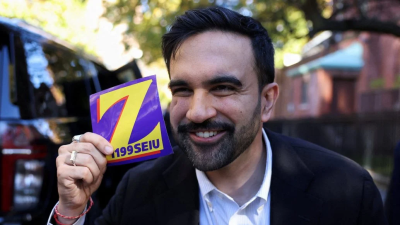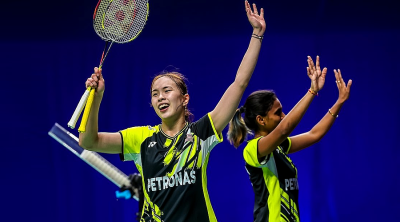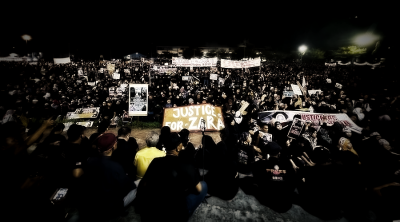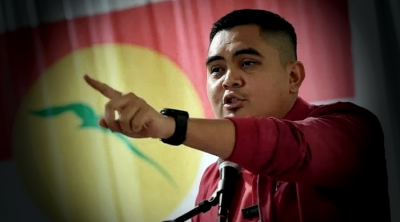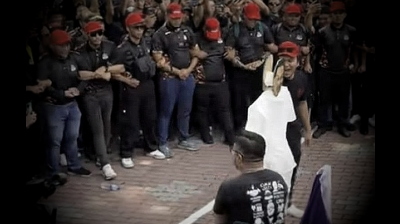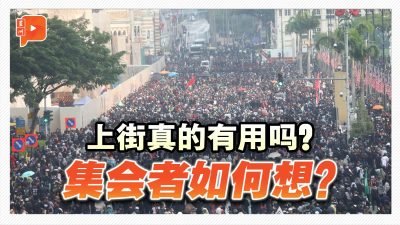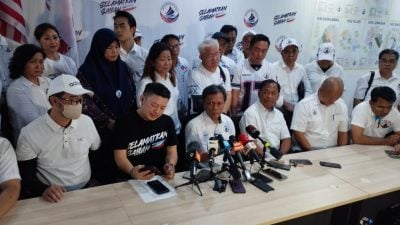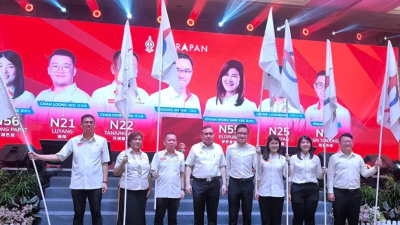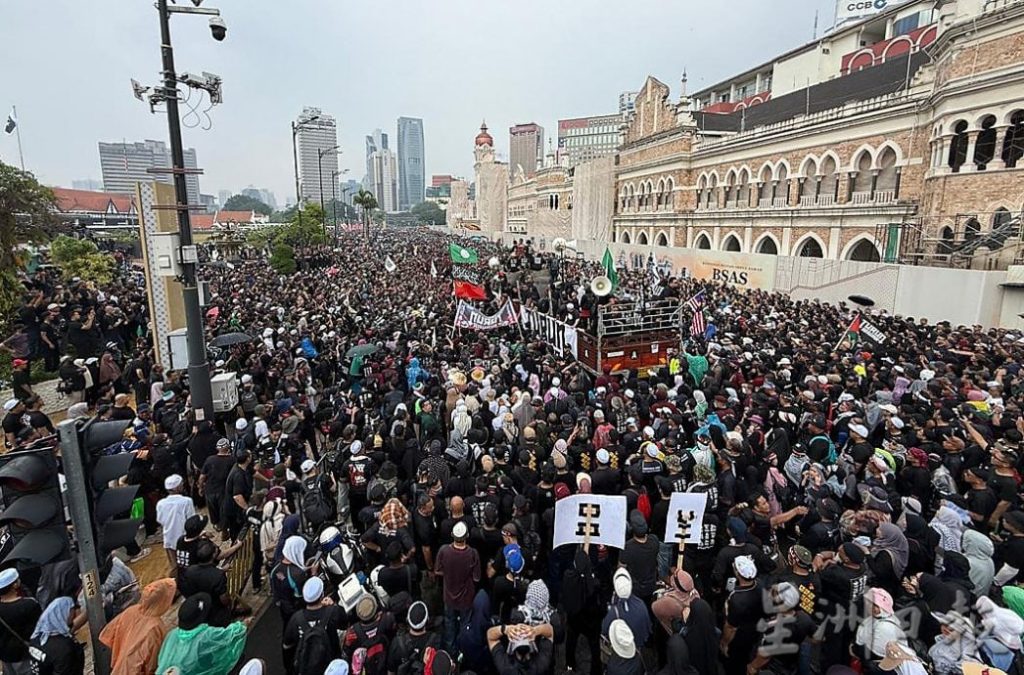
The “Turun Anwar” rally last Saturday was not significantly different from a series of similar rallies recently held by PAS under Perikatan Nasional. The same group of “old politicians” was dominant and loudly criticising Prime Minister Datuk Seri Anwar Ibrahim through microphones, but offering little in terms of fresh content or strategy. Although the participation of social media influencers and university students added some new faces, the overall episode remained repetitive, failing to inject new momentum or issues into the opposition’s camp.
From the perspective of Perikatan Nasional (PN), what they seek is not new arguments but the ability to create a shock effect through sheer numbers. Even if the rhetoric is recycled, as long as crowds gather in large numbers, the spectacle alone can serve their political objectives—exerting pressure, stirring emotions, and creating the public perception that Anwar’s government is on shaky ground. For them, form matters more than content, and headcount outweighs arguments.
Before and after the rally, PAS exaggerated the turnout. In reality, the crowd numbered in the tens of thousands, yet they confidently claimed an attendance of 500,000 without blinking. For PN, this is not only about projecting strength externally but also a morale-boosting call to its supporters internally. They aim to build a collective illusion that “a wave is rising,” thus paving the way for further mobilisation and support.
After the rally, Anwar posted on social media to present himself as a democratic leader who respects the freedoms of assembly and expression. He appeared calm and magnanimous, showcasing a sense of democratic maturity. Of course, Anwar knew that cracking down on the rally would backfire. Unlike in Najib’s era, when riot police and tear gas were used to disperse crowds, such scenes were absent this time—and that deserves some credit.
However, from another perspective, PN may spin this as Anwar being “caught off guard by unexpectedly large numbers” and forced to back down. They could further claim the rally proved that public pressure is effective, amplifying its political impact.
Protesting on the streets is familiar territory for Pakatan Harapan (PH) politicians. Many PN leaders today were once part of those same street protests. They are simply recycling the protest playbook they learned during their time in PH and using it against PH now.
Of course, rallies like these can’t overthrow the government or force Anwar to resign—after all, he holds a relatively stable majority in Parliament. PH knows from past experience that rallies are never a one-stop solution. Even PN, despite its tough rhetoric, understands this reality. That’s why PN leaders have not responded to Anwar’s challenge to table a vote of no confidence—because they simply don’t have the numbers.
A second “Sheraton Move” also carries risks. The Malay rulers pose the biggest obstacle, and most citizens do not want to see further political instability. Moreover, although PN leaders often claim someone more capable than Anwar should lead the country, they can’t seem to say who that person is.
That said, if PH becomes complacent and mishandles public sentiment or lacks progress in reform, it risks repeating the fate of the Barisan Nasional government, which was toppled by public opinion. Copying Najib’s tactic of handing out “goodies” could backfire. What supporters really want is reform—especially non-Malays, who have long hoped for equal treatment that still hasn’t materialised. Malays, too, desire institutional reform, but many are also concerned about losing their economic security and their interests are infringed.
Currently, what Anwar lacks is an effective communication strategy and illustration of a clear policy. This has led to perceptions among some members of the public that he is out of touch with grassroots realities. To navigate an increasingly complex political landscape, Anwar’s government urgently needs to build a more systematic approach to governance, improve communication with the public, and accelerate the implementation of people-oriented policies. Tangible results, not vague statements, are essential to rebuild public trust and solidify the administration’s foundation before the next general election.
In response to criticism about the slow pace of reform, Anwar’s government has repeatedly explained that internal ideological differences within the ruling coalition often lead to resistance when implementing structural reforms. However, such internal tensions should not be used as an excuse for delaying reform. As the largest bloc in the coalition, holding 81 seats, PH has long branded itself as a reform champion. Now that it is in power, it must fulfil its responsibilities to drive good governance and institutional reform—responding to grassroots expectations and winning over moderate voters.
On the PN side, Parti Pribumi Bersatu Malaysia’s Datuk Seri Hamzah Zainudin appears to believe that a vote of no confidence in Parliament is still a viable option—perhaps hoping that Bersatu can convince UMNO or GPS (Gabungan Parti Sarawak) to defect. But PAS’s Datuk Seri Takiyuddin Hassan has stated that the timing isn’t right, and for now, their only option is to use rally turnout to pressure Anwar. PN leaders have tried to downplay their strategic differences, but frankly, while they are eager to reclaim power, they can’t seem to align on key moves, showing a lack of coordination.
On the topic of no-confidence motion, we can refer to the ruling by Federal Court on the Perak constitutional crisis. The Perak State Constitution does not require a vote in the state assembly to determine if the assembly has lost confidence in the Menteri Besar. As long as there is sufficient evidence—such as the Menteri ’Bear s own admission or public declarations by assembly members—that indicates a loss of majority support, it can be taken as proof. Similarly, the Federal Constitution does not state that a no confidence motion tabled against the prime minister in the Dewan Rakyat (House of Representatives) is the only way to determine whether a Prime Minister has lost majority support.
Nevertheless, despite this legal flexibility, neither street protests nor parliamentary shouting matches against Anwar can legally or constitutionally establish a loss of confidence.
In conclusion, if PN truly wants to seize power, it must return to Parliament, win more seats, and rely on democratic elections to defeat PH at the ballot box. Meanwhile, if Anwar wants to finish his term and retain power in the next general election, he must first maintain good relations with current coalition partners to take on PN, and second, ensure voters and supporters see concrete evidence of PH delivering on its reform promises.
After July 26, regardless of whether PN continues organising rallies, the sun will still rise, and people will continue working hard to make a living. What the public longs for most is a stable livelihood and secure jobs. Whoever can truly resolve livelihood issues, fix systemic flaws, and protect people’s rightful interests will likely win the vote from the people.
ADVERTISEMENT
ADVERTISEMENT






